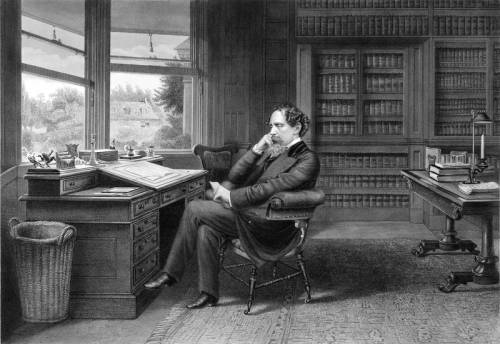
In June 1857, Hans Christian Andersen arrived at Charles Dickens’ new country home, Gads Hill Place. Andersen was an enormous admirer of Dickens — he had just dedicated a novel to him and was eager to enjoy a fortnight with his “friend and brother.”
Enjoy it he did. He gathered nosegays in the woods, cut figures from paper, invited Dickens’ son Charley to shave him, and explored London in cabs while hiding his valuables in his boots. He found that Dickens had an excellent supply of dinner whiskey and could offer a large tumbler of gin and sherry afterward. He watched Dickens perform in The Frozen Deep, burst into tears at the death scene, drank champagne with the cast, and returned to see it again a week later.
So delighted was he that in the end he stayed five weeks instead of the planned two. “None of your friends can be more closely attached to you than I,” he wrote on the way back to Denmark. “The visit to England, the stay with you, is a bright point in my life. … I understood every minute that you cared for me, that you were glad to see me, and were my friend.”
When Dickens returned to the house, he stole into Anderson’s bedroom and affixed a card to the dressing-table mirror. “Hans Christian Andersen slept in this room for five weeks,” it said, “which seemed to the family AGES.”





